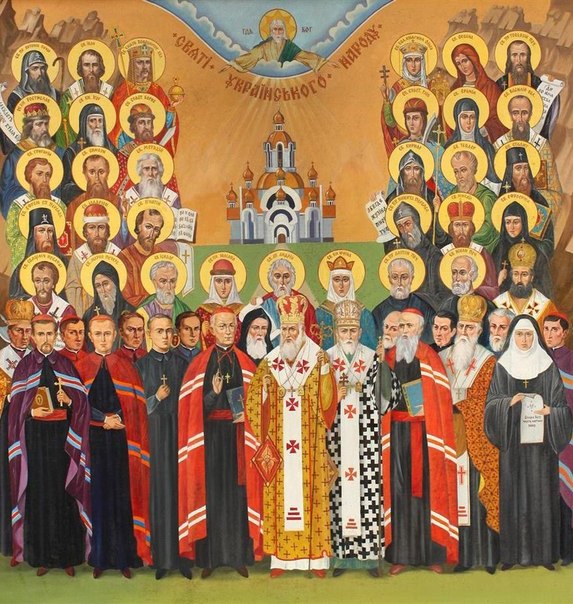Here is an excellent bit of exegesis from Mystagogy:
The story is, in fact, more complicated. By the mid-fourth century Christians in the Mediterranean world were keeping a feast in honour of all those who had been martyred under the pagan emperors; it is mentioned in the Carmina Nisibena of St Ephraim, who died in about 373, as being held on 13 May. During the fifth century divergent practices sprang up, the Syrian churches holding the festival in Easter Week, and those of the Greek world preferring the Sunday after Pentecost. That of Rome, however, preferred to keep the May date, and Pope Boniface IV formally endorsed it in the year 609. By 800 churches in England and Germany, which were in touch with each other, were celebrating a festival dedicated to all saints upon 1 November instead. The oldest text of Bede’s Martyrology, from the eighth century, does not include it, but the recensions at the end of the century do. Charlemagne’s favourite churchman Alcuin was keeping it by then, as were also his friend Arno, bishop of Salzburg, and a church in Bavaria. Pope Gregory, therefore, was endorsing and adopting a practice which had begun in northern Europe. It had not, however, started in Ireland, where the Felire of Oengus and the Martyrology of Tallaght prove that the early medieval churches celebrated the feast of All Saints upon 20 April. This makes nonsense of Frazer’s notion that the November date was chosen because of ‘Celtic’ influence: rather, both ‘Celtic’ Europe and Rome followed a Germanic idea…. (Read entire post.)






















No comments:
Post a Comment